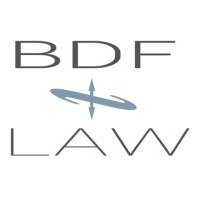Best Private Client Lawyers in Launceston
Share your needs with us, get contacted by law firms.
Free. Takes 2 min.
List of the best lawyers in Launceston, Australia
About Private Client Law in Launceston, Australia
Private client law in Launceston, Tasmania, focuses on providing legal services and advice to individuals and families regarding personal matters such as estate planning, wills, trusts, probate, powers of attorney, business succession, taxation, family asset protection, and guardianship. With Launceston being one of Tasmania's major regional centres, many residents and business owners require tailored legal solutions to protect their personal interests, transfer wealth, and manage complex family or business situations.
Why You May Need a Lawyer
There are several situations where professional legal advice in the private client field becomes essential. People typically seek a lawyer's help under the following circumstances:
- Drafting a will to ensure your estate is distributed according to your wishes
- Setting up or reviewing trusts to benefit family members or charities
- Applying for probate and administering deceased estates
- Creating a power of attorney or enduring guardianship document
- Managing business succession planning, especially for family-owned businesses
- Challenging a will or defending an estate from a claim under family provision legislation
- Advising on the legal aspects of ageing, incapacity, and residential care or elder abuse issues
- Minimising personal or estate tax liabilities and complying with changing tax standards
- Resolving disputes among beneficiaries, executors, or family members regarding estate assets
- Legal guidance for protecting vulnerable family members or dependents
Local Laws Overview
In Launceston, private client law is governed by both Tasmanian and Australian federal legislation. Key legal frameworks include:
- The Wills Act 2008 (Tas) sets out the requirements for creating valid wills in Tasmania and determines how estates are distributed when someone passes away without a will (intestate).
- The Administration and Probate Act 1935 (Tas) outlines the rules and processes for administering deceased estates, including granting probate and letters of administration.
- The Guardianship and Administration Act 1995 (Tas) provides for appointing enduring guardians and administrators for individuals who can no longer make decisions due to incapacity.
- The Family Provision Act 1975 (Tas) enables eligible persons to make claims against a deceased estate if they believe they have not received adequate provision.
- Trust law in Tasmania is based on common law principles and relevant statutes, often requiring expert drafting for compliance and effectiveness.
- Federal tax laws affect estate planning, superannuation, and trust distributions.
Local customs, property valuations, and specific Tasmanian processes for probate and disputes are also important and can affect timelines and outcomes.
Frequently Asked Questions
What is the first step if someone dies in Launceston without a will?
If a person dies intestate (without a will), their estate is distributed according to the rules set out in the Administration and Probate Act 1935 (Tas). A close family member usually applies for letters of administration to manage the estate.
How do I know if my will is valid in Tasmania?
A will is valid if it is in writing, signed by the testator (the person making the will), and witnessed by two people who are present at the same time. There are some exceptions, but generally, strict adherence to the Wills Act 2008 (Tas) is advised.
When should I update my will?
You should update your will whenever you have a significant life change, such as marriage, divorce, having children, buying property, or if you wish to change your executors or beneficiaries.
What is probate, and do I always need it?
Probate is the Supreme Court of Tasmania's formal recognition of a will's validity. Probate is usually required to access or transfer estate assets, particularly property or bank accounts. Smaller estates may sometimes be managed without it.
Can I set up a trust for my children in Tasmania?
Yes, trusts can be established for children or other dependents. These require careful legal drafting to ensure they are effective, legally compliant, and reflect your intentions regarding control, management, and distribution of funds.
What is an enduring power of attorney?
An enduring power of attorney allows you to appoint someone to make financial and legal decisions for you if you lose capacity. An enduring guardian can be appointed to make personal, health, and lifestyle decisions.
How can I minimise taxes when planning my estate?
By structuring your will, trusts, and asset ownership effectively, you can often reduce potential tax liabilities. However, Australian law does not have inheritance tax, but there may be capital gains tax and other consequences. Legal advice is essential for personalised planning.
Who can challenge a will in Tasmania?
Eligible persons such as spouses, children (including stepchildren), and, in certain circumstances, other dependents can challenge a will under the Family Provision Act if they believe they have not been adequately provided for.
What if I suspect elder abuse or financial exploitation?
If you believe someone is experiencing elder abuse or financial exploitation, you should seek urgent legal advice. The Guardianship and Administration Act provides mechanisms to protect vulnerable adults, including court-appointed guardians or administrators.
Is my superannuation included in my will?
Superannuation does not automatically form part of your estate unless the trustee pays the benefit to your estate. You may need to make a binding death benefit nomination to control who receives your superannuation.
Additional Resources
If you are seeking information or support, these resources may be helpful:
- Tasmania Department of Justice: Provides information on wills, enduring powers of attorney, and guardianship
- Supreme Court of Tasmania: Probate and estate administration guidance
- Legal Aid Commission of Tasmania: Free and low-cost legal advice, particularly for vulnerable people
- Law Society of Tasmania: Referral service for private client solicitors in Launceston
- Public Trustee Tasmania: For assistance with preparing wills and managing deceased estates
Next Steps
If you require legal assistance with a private client matter in Launceston, consider the following steps:
- Collect any relevant documents such as identification, property deeds, superannuation statements, and any previous wills or trusts.
- Make a list of questions and your objectives for meeting with a lawyer, such as preparing a will, appointing a guardian, or resolving a dispute.
- Contact a reputable Launceston-based private client lawyer or use the Law Society of Tasmania's referral service to find a qualified practitioner.
- Attend your consultation and provide full and honest information to help your lawyer offer appropriate advice.
- Follow your lawyer's guidance and keep records of all communications and legal documents for future reference.
By seeking professional advice early, you can ensure your interests and those of your family are protected in accordance with Tasmanian law.
Lawzana helps you find the best lawyers and law firms in Launceston through a curated and pre-screened list of qualified legal professionals. Our platform offers rankings and detailed profiles of attorneys and law firms, allowing you to compare based on practice areas, including Private Client, experience, and client feedback.
Each profile includes a description of the firm's areas of practice, client reviews, team members and partners, year of establishment, spoken languages, office locations, contact information, social media presence, and any published articles or resources. Most firms on our platform speak English and are experienced in both local and international legal matters.
Get a quote from top-rated law firms in Launceston, Australia — quickly, securely, and without unnecessary hassle.
Disclaimer:
The information provided on this page is for general informational purposes only and does not constitute legal advice. While we strive to ensure the accuracy and relevance of the content, legal information may change over time, and interpretations of the law can vary. You should always consult with a qualified legal professional for advice specific to your situation.
We disclaim all liability for actions taken or not taken based on the content of this page. If you believe any information is incorrect or outdated, please contact us, and we will review and update it where appropriate.
Browse private client law firms by service in Launceston, Australia
Launceston, Australia Attorneys in related practice areas.











